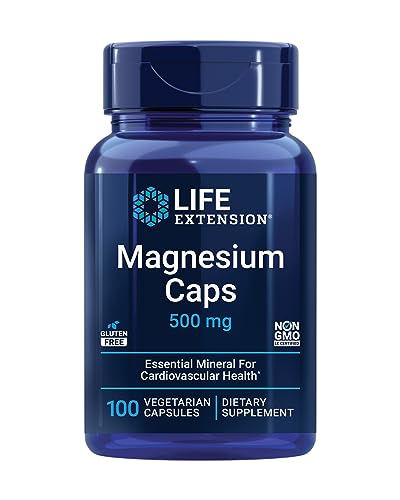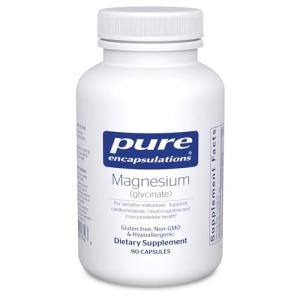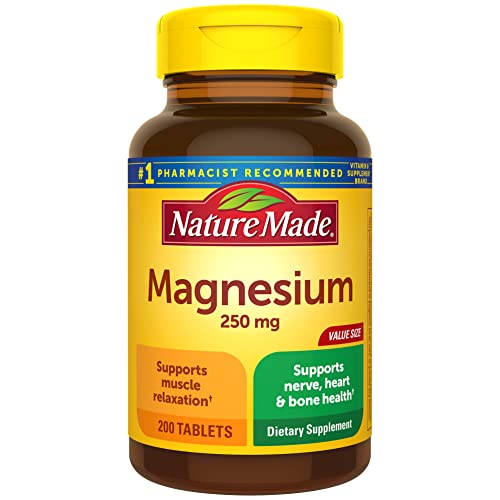Magnesium is a cornerstone mineral critical to human health, yet its importance is often underappreciated. From energy production to nerve function, magnesium supports a wide array of physiological processes. This guide delves into the benefits of magnesium supplementation, why some forms are superior, and practical tips to optimize your magnesium intake.
What Is Magnesium?
Magnesium is an abundant mineral found in the earth’s crust, seawater, plants, animals, and the human body. Within our bodies, approximately 60% of magnesium resides in bones, while the remainder is distributed across muscles, soft tissues, and fluids like blood. It plays a vital role in over 300 enzymatic reactions, underscoring its significance in numerous biological processes.
Key Functions of Magnesium
-
Energy Production: Magnesium aids in ATP synthesis, the primary energy carrier in cells.
-
Neuromuscular Function: It regulates muscle contractions and nerve impulses, ensuring proper coordination.
-
Bone Integrity: Magnesium enhances calcium absorption, contributing to bone density and strength.
-
Cardiovascular Health: It helps maintain a stable heartbeat and supports healthy blood pressure levels.
-
Mental Well-Being: Magnesium is associated with mood regulation and the mitigation of anxiety and depression symptoms.
Why Choose Magnesium Supplements?
Despite balanced diets, many individuals fall short of meeting magnesium requirements due to modern agricultural practices, food processing, and specific health conditions. Supplements can address these gaps and provide targeted benefits:
-
Improved Sleep: Magnesium promotes relaxation, enhancing sleep quality.
-
Muscle Recovery: It prevents cramps and supports post-exercise recovery, making it popular among athletes.
-
Stress Management: Studies show magnesium supplementation can alleviate stress and anxiety.
-
Heart Protection: Magnesium helps regulate blood pressure and may reduce the risk of arrhythmias.
The Many Forms of Magnesium
Not all magnesium supplements are equally effective. Here’s an overview of common forms and their benefits:
-
Magnesium Citrate: Highly bioavailable and effective for digestion and mild constipation relief.
-
Magnesium Glycinate: Renowned for its calming properties, this form is ideal for stress reduction and gentle on the stomach.
-
Magnesium Malate: Often used for energy enhancement and alleviating muscle soreness.
-
Magnesium Threonate: A cutting-edge form that crosses the blood-brain barrier, supporting cognitive function.
-
Magnesium Oxide: Economical but poorly absorbed; it often causes gastrointestinal discomfort and is best avoided.
-
Magnesium Chloride: A versatile form suitable for topical use or digestive support.
Why Avoid Magnesium Oxide?
Magnesium oxide is a prevalent option in inexpensive supplements but offers the lowest absorption rates among magnesium forms. Its tendency to cause gastrointestinal upset diminishes its effectiveness, making other forms like citrate or glycinate far better choices for those seeking therapeutic benefits.
Recognizing Magnesium Deficiency
Magnesium deficiency is more common than many realize and manifests in a variety of symptoms, including:
-
Persistent muscle cramps or spasms
-
Fatigue and diminished energy levels
-
Appetite loss or nausea
-
Irregular heart rhythms
-
Mood disturbances, such as heightened anxiety or irritability
Severe deficiencies may escalate into chronic conditions like osteoporosis, cardiovascular issues, or insulin resistance.
Magnesium-Rich Foods
Achieving adequate magnesium intake starts with a nutrient-dense diet. Excellent dietary sources include:
-
Leafy Greens: Spinach, kale, and Swiss chard
-
Nuts and Seeds: Almonds, cashews, and pumpkin seeds
-
Whole Grains: Oats, quinoa, and brown rice
-
Legumes: Lentils, black beans, and chickpeas
-
Fish: Salmon, mackerel, and halibut
-
Dark Chocolate: Opt for varieties with 70% or higher cocoa content
Maximizing Magnesium Absorption
-
Pair magnesium-rich meals with foods high in vitamin D to enhance absorption.
-
Limit alcohol and caffeine intake, as these can deplete magnesium stores.
-
Use cooking techniques like steaming or roasting to preserve magnesium content in vegetables.
Are Magnesium Supplements Right for You?
Magnesium supplements can bridge dietary gaps and target specific health concerns. Opt for highly bioavailable forms, such as magnesium glycinate or citrate, to maximize benefits while minimizing side effects. Consulting a healthcare provider is essential before starting any supplement, as excessive magnesium intake may cause adverse effects like diarrhea, nausea, or cramping.
Practical Tips for Supplementation
-
Take magnesium with food to reduce the likelihood of stomach upset.
-
Avoid combining magnesium with high doses of zinc or calcium supplements, which may interfere with absorption.
-
Start with a lower dose and gradually increase to avoid potential gastrointestinal discomfort.
Increasing Your Magnesium Intake
Magnesium is indispensable for overall health, influencing everything from energy production to cardiovascular function. Incorporating magnesium-rich foods into your diet and choosing high-quality supplements when needed can help you achieve optimal levels. If you suspect a deficiency, seek professional guidance to determine the best course of action for your well-being. To learn more about the benefits and cautions related to magnesium and other minerals, we recommend reading The Mineral Fix by Dr. James Dinicolantonio. Start shopping for high quality magnesium supplements below.







